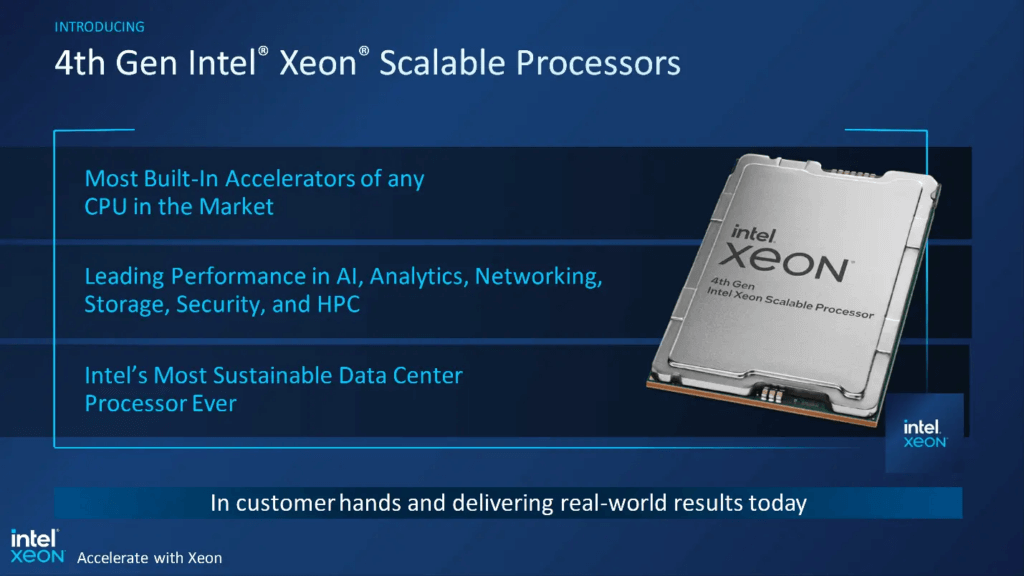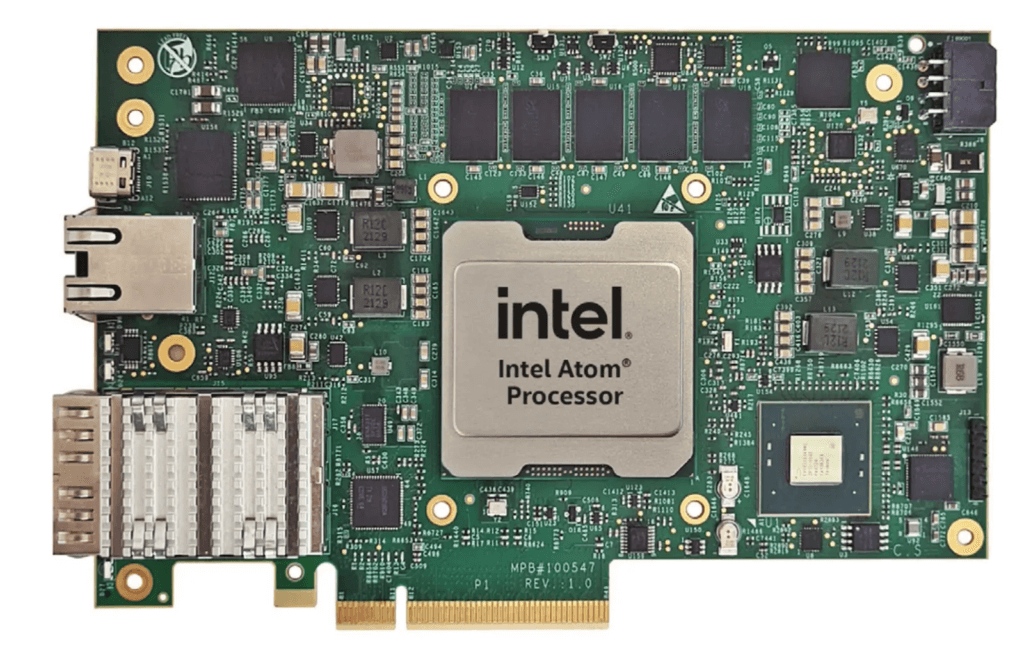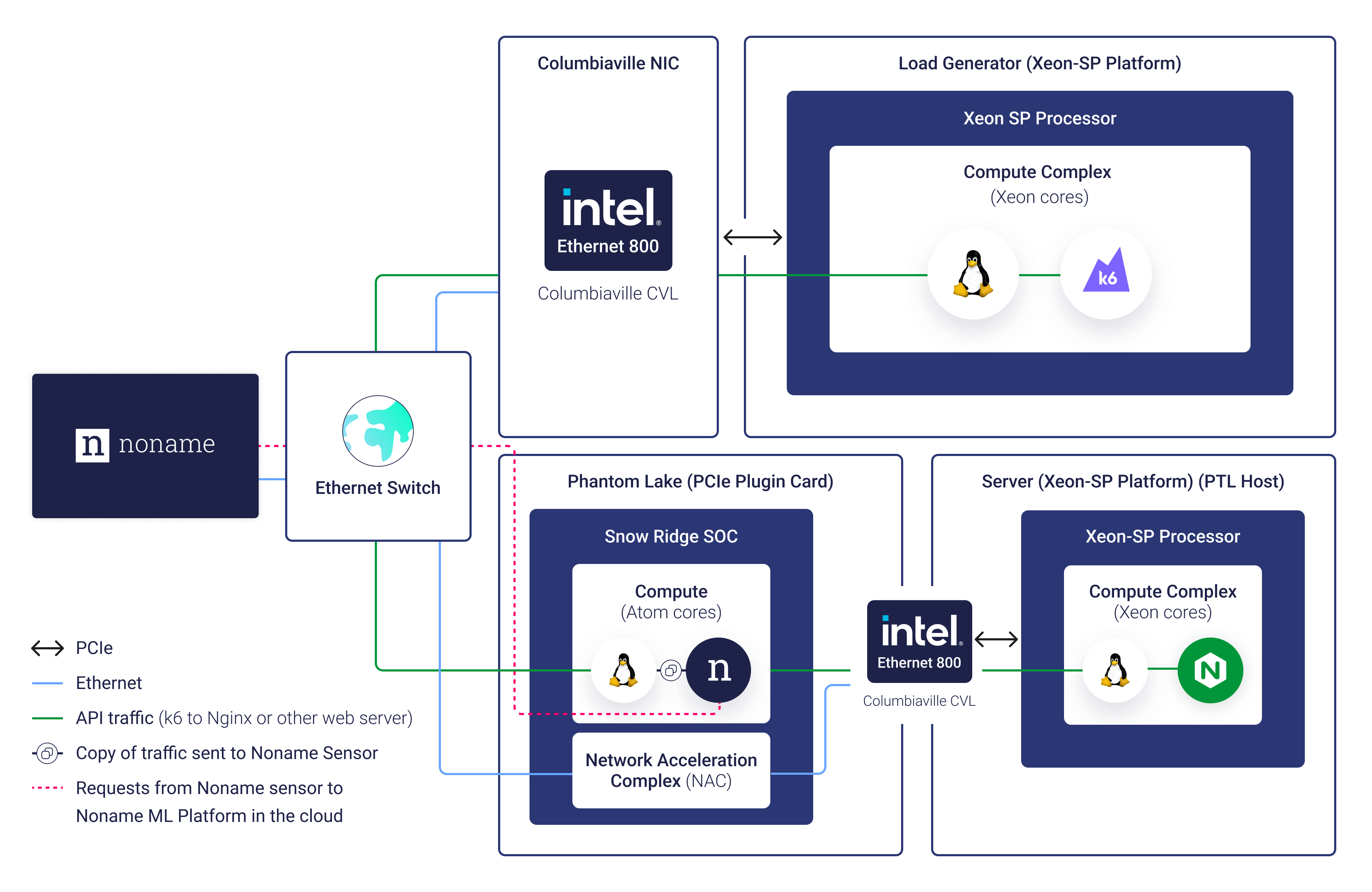
Intel & Noname Security
Join David Thomason, Worldwide Director of Alliances at Noname Security, and Rick Echevarria, General Manager of Intel Security Center of…
{ "term_id": 165, "name": "Ryan B", "slug": "ryan-b", "term_group": 0, "term_taxonomy_id": 165, "taxonomy": "wpx-authors", "description": "", "parent": 0, "count": 3, "filter": "raw" }
Noname Security is a proud member of the Intel Network Builders partner program. Our joint collaboration with Intel is delivering optimized solutions for our customers based on Intel’s world class architecture.
Acceleration of Machine Learning and API traffic processing using 4th Gen Intel Xeon Scalable processor and its Intel Advanced Matrix Extensions (AMX) is showing significant improvement in processing throughput and latency for large scale API security deployments across hybrid, and public cloud deployments.

Source: Intel
We have tested 4th Gen Intel Xeon Scalable processors using cloud instances from various Public Cloud providers and have found significant performance improvements compared to previous generation cloud instances.
Using a variety of different use case benchmarks across Financial Services, Healthcare, and more generic API processing, we have determined improvements in processing up to 3x faster than previous generations of CPUs with response times in the sub 0.5ms range.
In AI, and compared to previous generation, 4th Gen Intel Xeon Scalable processors achieve up to 10x higher PyTorch real-time inference and training performance by utilizingAMX accelerators.
This testing was performed using a preview version of the AWS r7iz.metal-16xl Instance type.
We are seeing sustained low latency and high throughput for API processing.
Next to our testing with the 4th Gen Intel Xeon Scalable processors we also tested our Noname Security architecture with Intel NetSec Accelerator Reference Design. This Intel architecture-based PCIe add-in card supports processor intensive workloads, and features all of the functionality of a server with the capability to support full orchestration and management capabilities and ideally suited for security workloads and AI/ML, the offload can help improve performance, scale, and efficiency in both edge and cloud scenarios.

Source: Intel NetSec Accelerator Reference Design
This highly integrated device incorporates the Intel Ethernet Network Adapter E810, a network switch, cost-efficient on-board DDR4 memory, and hardware accelerators into the package. Together, they provide low-latency networking and drive significant advantages in reduced equipment cost, space/server requirements, and energy consumption. Intel QuickAssist Technology (Intel QAT) is included within the package, communicating directly with the onboard Ethernet controller to shorten packet data paths, accelerating inline IPsec.
Our testing has demonstrated a significant performance improvement opening up a variety of new use cases for extremely low latency requirements and high throughput scenarios.

The Noname Sensor is a lightweight component used for sniffing API transactions and sending them for analysis to a Noname engine. It can be installed on any server in your environment that routes inbound/outbound unencrypted traffic, in this case running on the Intel Atom processor based accelerator card. The sensor sends the API traffic to the engine using HTTPS. The sensor requires an unencrypted API traffic flow on the server, or an API proxy that offloads the encryption and delivers unencrypted traffic (HTTP) to the server, Noname allows you to tune resources (e.g Memory and/or CPU) it consumes to make sure we run at optimal performance vs available resources.
Note: Noname also has the ability to use our eBPF based agent for specific use cases, including supporting end to end encryption.
By leveraging the Noname Sensor on the accelerator card our joint customers can benefit from API Security processing offloading preserving the server CPU for more generalized tasks boosting performance and enabling new types of architectures.
Our collaboration with Intel enables our customers to keep innovating at speed, the new Intel CPU architectures and accelerators are a perfect match for API security processing at scale and opens up exciting new use cases including 5G, military, health care, financial systems, and government systems.